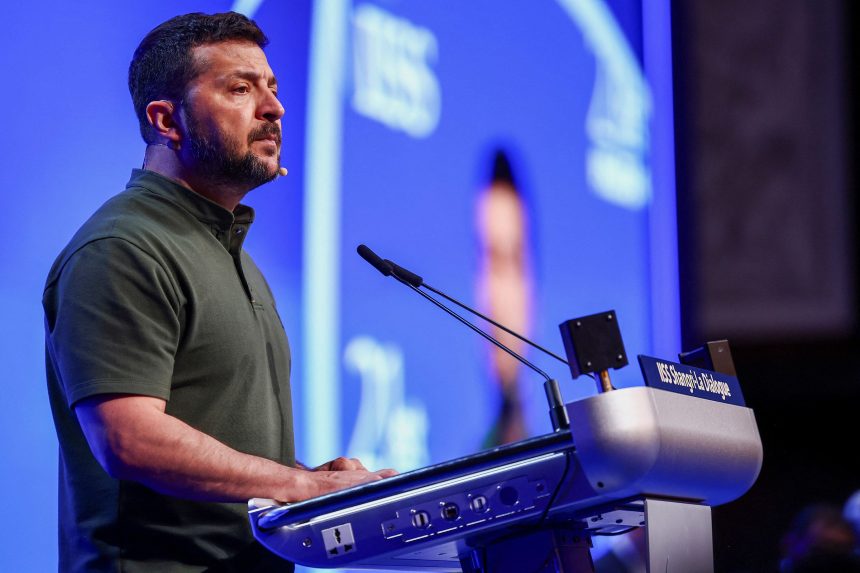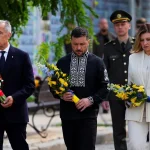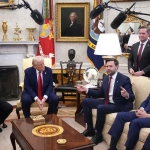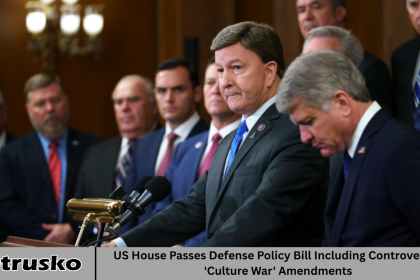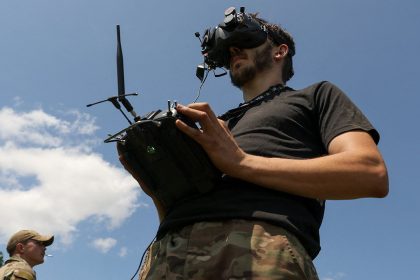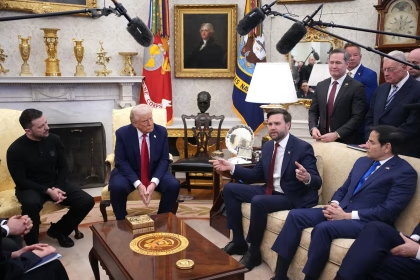Zelensky has repeatedly accused Moscow of deliberately stalling peace negotiations while intensifying its military offensives. According to Ukrainian intelligence, Russia’s aim is clear: exhaust Ukraine militarily, economically, and psychologically.
Moscow’s Tactics
Dragging Out Negotiations: Russian officials have entered talks only to walk away or impose unrealistic conditions.
Expanding Frontlines: Renewed attacks in eastern Ukraine and missile strikes across cities reflect a strategy of attrition.
Targeting Civilians: By striking civilian infrastructure, Russia aims to break Ukrainian morale and put pressure on the government.
“Russia does not want peace; it wants control,” Zelensky said during a recent address. “Every missile, every drone strike is a message that Moscow is not ready for dialogue.”
Ukraine’s Stance: A Fight for Survival
For Ukraine, the war is not just about territory—it is about sovereignty, democracy, and survival. Zelensky’s warning highlights Kyiv’s refusal to accept any peace plan that undermines its independence.
Ukraine insists that:
- Russian troops must withdraw from all occupied territories, including Crimea and Donbas.
- Accountability for war crimes must be enforced through international courts.
- Security guarantees from the West must be provided to prevent future aggression.
- By framing Russia as an aggressor determined to extend conflict, Zelensky is appealing to international allies not to push Ukraine into concessions that would only embolden Moscow.
- International Response: Growing Pressure on Moscow
Zelensky’s statement has resonated with Western allies, but global reactions remain mixed.
Support from the West
- United States: Washington has pledged billions in military aid, emphasizing that negotiations must be on Ukraine’s terms.
- European Union: EU leaders stress that appeasement of Moscow is not an option, especially after the atrocities in Bucha and Mariupol.
- NATO: Military exercises and increased presence in Eastern Europe underscore NATO’s commitment to deterring further Russian aggression.
Hesitance from Others
China: Beijing calls for peace talks but avoids condemning Moscow directly.
Global South: Countries in Africa and Asia, struggling with food and energy crises, are pushing for negotiations but remain wary of taking sides.
Humanitarian Toll of an Extended Conflict
- As Zelensky warns of Russia’s intentions to extend the conflict, the humanitarian crisis deepens.
- Casualties: According to UN estimates, over 10,000 civilians have been killed, with many more injured.
- Refugees: More than 8 million Ukrainians have fled abroad, making this one of Europe’s largest refugee crises since World War II.
- Infrastructure: Entire cities, including Mariupol and Bakhmut, have been reduced to rubble.
- Psychological Impact: Prolonged war has left millions suffering from trauma, uncertainty, and displacement.
- For every day the conflict drags on, the human cost grows heavier.
Peace Talks: A Dead End?
- The possibility of peace talks remains distant. Russia has rejected proposals requiring troop withdrawal, while Ukraine refuses to accept any settlement that legitimizes occupation.
- “Peace without justice is surrender,” Zelensky remarked in a recent interview. “We cannot trade sovereignty for silence.”
- International mediators, including Turkey and the United Nations, have tried to bring the sides to the table. Yet, with Russia accused of using negotiations as a smokescreen for regrouping its forces, progress has been minimal.
- Global Stakes: Why This War Matters Beyond Ukraine
Zelensky’s warning that Russia seeks to derail peace and extend the conflict has implications far beyond Ukraine’s borders.
Energy Security: Europe has faced record energy prices due to disruptions in Russian gas supplies.
Food Crisis: Ukraine’s role as a major grain exporter means blockades in the Black Sea have worsened global hunger.
Geopolitical Order: The war challenges international law, sovereignty principles, and the credibility of institutions like the UN.
Military Precedent: A Russian victory or frozen conflict could embolden other authoritarian regimes.
Expert Analysis
Analysts agree with Zelensky’s assertion that Russia benefits from prolonging the war.
Michael Clarke, defense expert: “Russia hopes to outlast Western support for Ukraine, betting that political divisions and economic strain will eventually weaken Kyiv’s allies.”
Olga Tokariuk, Ukrainian journalist: “Every delay in pushing Russia back militarily reduces the chances of a genuine peace settlement.”
Experts emphasize that the only path to real peace is through sustained pressure on Moscow, both militarily and diplomatically.
The Path Forward
As Ukraine braces for a prolonged conflict, Zelensky’s warning serves as both a rallying cry and a sobering reality check. The coming months will test not only Ukraine’s endurance but also the unity of its allies.
- The key questions remain:
- Can Ukraine maintain battlefield momentum with Western support?
- Will Russia escalate further to maintain leverage?
- How long can the international community sustain economic and military aid?
FAQs
What did Zelensky warn about Russia’s intentions?
Zelensky warned that Russia is deliberately seeking to derail peace talks and prolong the war to weaken Ukraine and pressure the West.
Why is Russia extending the conflict?
Analysts believe Moscow wants to exhaust Ukraine militarily and economically while waiting for Western unity to falter.
What are Ukraine’s conditions for peace?
Ukraine demands full Russian withdrawal, accountability for war crimes, and international security guarantees.
How has the international community responded?
The West supports Ukraine with aid and sanctions against Russia, while countries like China call for talks without condemning Moscow.
What are the global consequences of the war?
The war has disrupted global energy supplies, worsened food insecurity, and tested international law and order.
Conclusion
Russia Seeks to Derail Peace Efforts and Extend Conflict, Zelensky Warns — a statement that encapsulates the harsh truth of this war. For Ukraine, the fight is existential. For the world, it is a defining test of whether aggression or sovereignty prevails in the 21st century.
Peace remains the ultimate goal, but as things stand, Moscow’s actions suggest that the road to peace will be long, brutal, and uncertain. Zelensky’s words remind us that prolonging conflict is not just a Russian strategy—it is a human tragedy unfolding every day.

